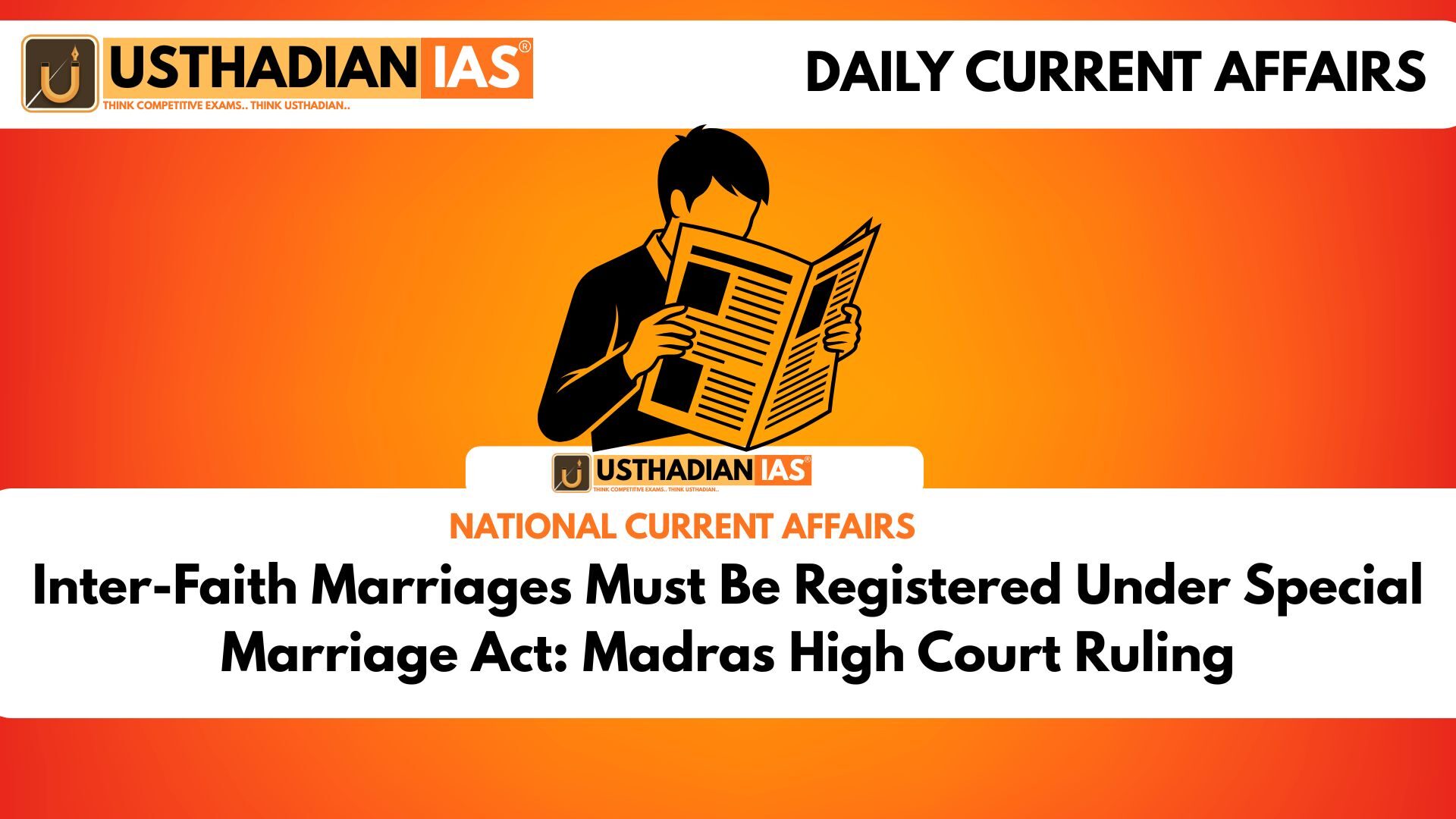High Court Clarifies Legal Status of Inter-Faith Marriages
Inter-Faith Marriages Must Be Registered Under Special Marriage Act: Madras High Court Ruling: In a recent and widely significant judgment, the Madras High Court ruled that inter-faith marriages involving a Hindu and a non-Hindu must be registered under the Special Marriage Act, 1954 to avoid being declared legally void. The ruling came during the hearing of an appeal filed against a Family Court decision that declared a marriage between a Hindu woman and a Christian man null and void.
Background of the Case
The case involved a woman belonging to the Hindu faith and a man from the Christian community, who had undergone a marriage ceremony in 2005. However, the marriage was neither conducted under Christian rites nor registered under any legal framework such as the Special Marriage Act or Indian Christian Marriage Act. Following marital issues, the plaintiff sought a declaration that the marriage was void, which was upheld by the Family Court and later affirmed by the High Court.
Court’s Reasoning and Legal Interpretation
The Division Bench of Justices RMT Teekaa Raman and N Senthilkumar emphasized that marriages involving parties of different religions must be formally registered under the Special Marriage Act, 1954. The court noted that the Hindu Marriage Act, 1955 applies only when both parties are Hindus and hence cannot validate a marriage between a Hindu and a non-Hindu performed under Hindu customs.
The judgment clearly stated, “A person of Hindu faith, who wishes to marry a person of other faith, in short, a non-Hindu, must register the marriage under the Special Marriage Act, in order to avoid illegality and void status of the marriage.”
Key Observations of the Court
The Bench noted that under Section 4 of the Special Marriage Act, any two persons irrespective of religion can marry under civil procedures. Since the parties did not register their marriage under this act, the marriage lacked legal standing.
The court also clarified that no valid marriage can exist under the Hindu Marriage Act or Christian Marriage Act when one party doesn’t belong to the respective faith. Consequently, the couple does not enjoy the legal status of husband and wife.
Implications for Inter-Faith Couples in India
This judgment serves as a critical reminder for inter-faith couples. Marriages that are not registered under an appropriate act are not legally recognised, leaving parties without spousal rights, inheritance claims, or maintenance entitlements.
With rising interfaith unions, especially among urban populations, the ruling pushes for greater awareness about legal formalities and avoids future legal disputes. The court stressed that social customs, even if accepted by families, cannot substitute legal compliance in matters of civil law.
Static GK Snapshot
| Topic | Details |
| Court | Madras High Court |
| Relevant Law | Special Marriage Act, 1954 (Section 15) |
| Related Laws | Hindu Marriage Act, 1955; Christian Marriage Act, 1872 |
| Case Type | Civil Appeal – Marriage Nullity |
| Judgment Date | February 2025 |
| Key Ruling | Inter-faith marriage not valid under Hindu rites |
| Required Legal Procedure | Registration under Special Marriage Act |
| Petitioner Religion | Christian |
| Respondent Religion | Hindu |
| Bench | Justice RMT. Teekaa Raman & Justice N. Senthilkumar |








